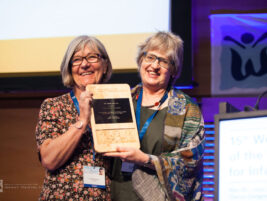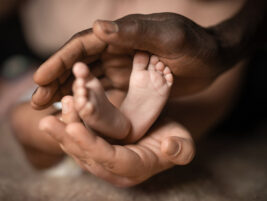Development of Infants and Toddlers in Ethnoracial Families
Culture is often defined as the shared values, norms, traditions, customs, history, arts, folklore, and institutions of a group of people.Despite what is shared, every racial and cultural group in the United States is itself richly diverse. A number of analyses of the literature on child development have drawn attention to the lack of focused attention to the study of child development in cultural context. During the past two decades, many important volumes on African American, Latino-American, and Asian American families have been published, but few of these volumes specifically address issues related to the earliest years. Even more poorly represented in the core knowledge base of human development is how within-group diversity exerts its influence on early development. In contemporary American society, increasing numbers of children are reared in multi-cultural, multi-racial and multi-ethnic families. Do such families blend their cultures to construct a new context for their children, or does one culture become the dominant standard? Race and culture are linked at macro levels, but within a particular macro culture, there is rich cultural diversity. What effects do racially and culturally diverse family structures have on child development during the earliest years? There is no consensus answer to these questions because the questions have not been adequately researched. We know little about within culture variation, and still less about within culture variation in bi-racial families apropos of early child development.
This special issue of the Infant Mental Health Journal will therefore focus on development from conception to age three in samples that predominately or exclusively include infants and toddlers of color. If the sample includes infants and toddlers from diverse ethno-racial groups, sample sizes for infants and toddlers of color must be sufficiently large to make meaningful within group analyses. Consequently, authors must provide more detail about the descriptive characteristics of their samples than is ordinary; within group variation is a key focus of this special issue. Our goal is to contribute to a deeper understanding of the life experiences of infants and toddlers reared in families of color, or in bi-racial families. Whether one’s research involves preventive-intervention, child care, parenting, father influences, or attachment relationships, data analyses, discussion, and implications must address questions of within-group variation.
As is usual for the Infant Mental Health Journal, we invite papers from all disciplines on all topics that are appropriate for the birth to three age group within the constraints noted above. All papers must be submitted electronically to fitzger9@msu.edu. Papers involving international samples are welcome. The Infant Mental Health Journal uses the peer review process to assess the quality of articles submitted for publication. All submissions must be in WORD or Word Perfect format. Send text, tables, and figures in separate files. Papers should not exceed 40 double-spaced pages, 12 point font, inclusive of all material. Deadline for electronic submission of manuscripts is May 1, 2008.
Please send submissions and address any inquiries about the special issue to fitzger9@msu.edu.
Call for Papers, Special issue of Infant Mental Health Journal
Authors
Fitzgerald, Hiram
Mann, Tammy
Cabrera, Natasha
Sarche, Michelle
Qin, Desiree
USA








